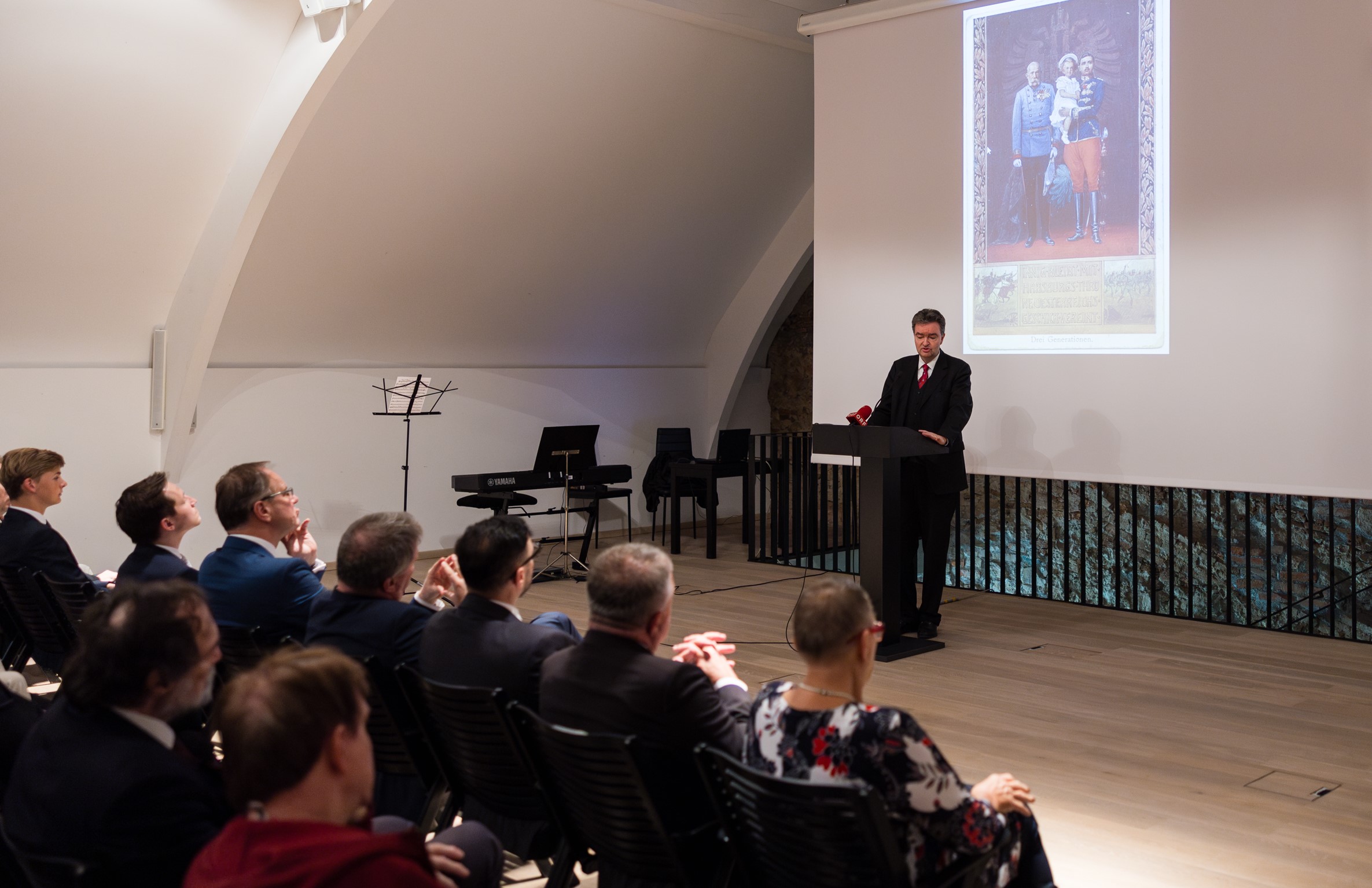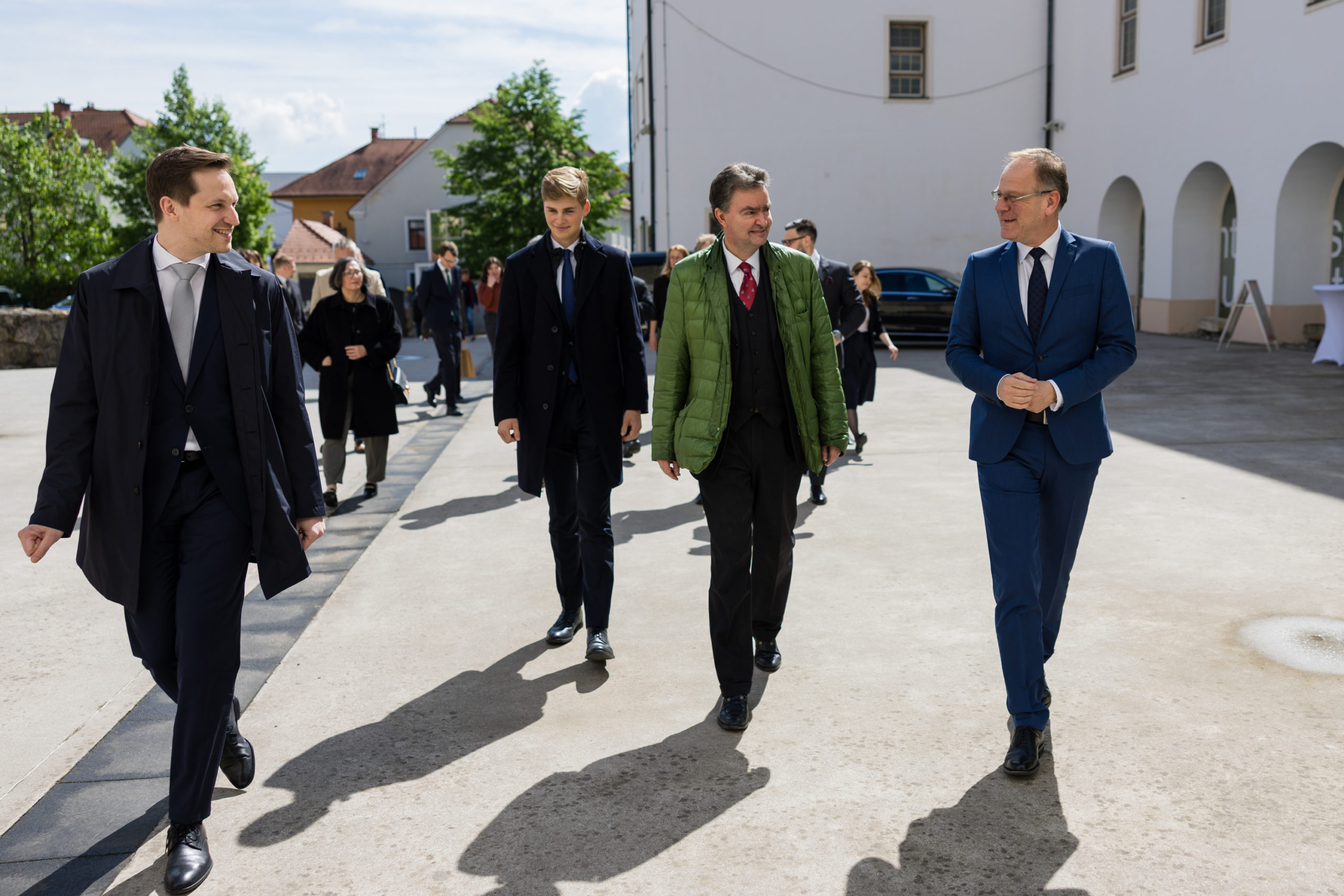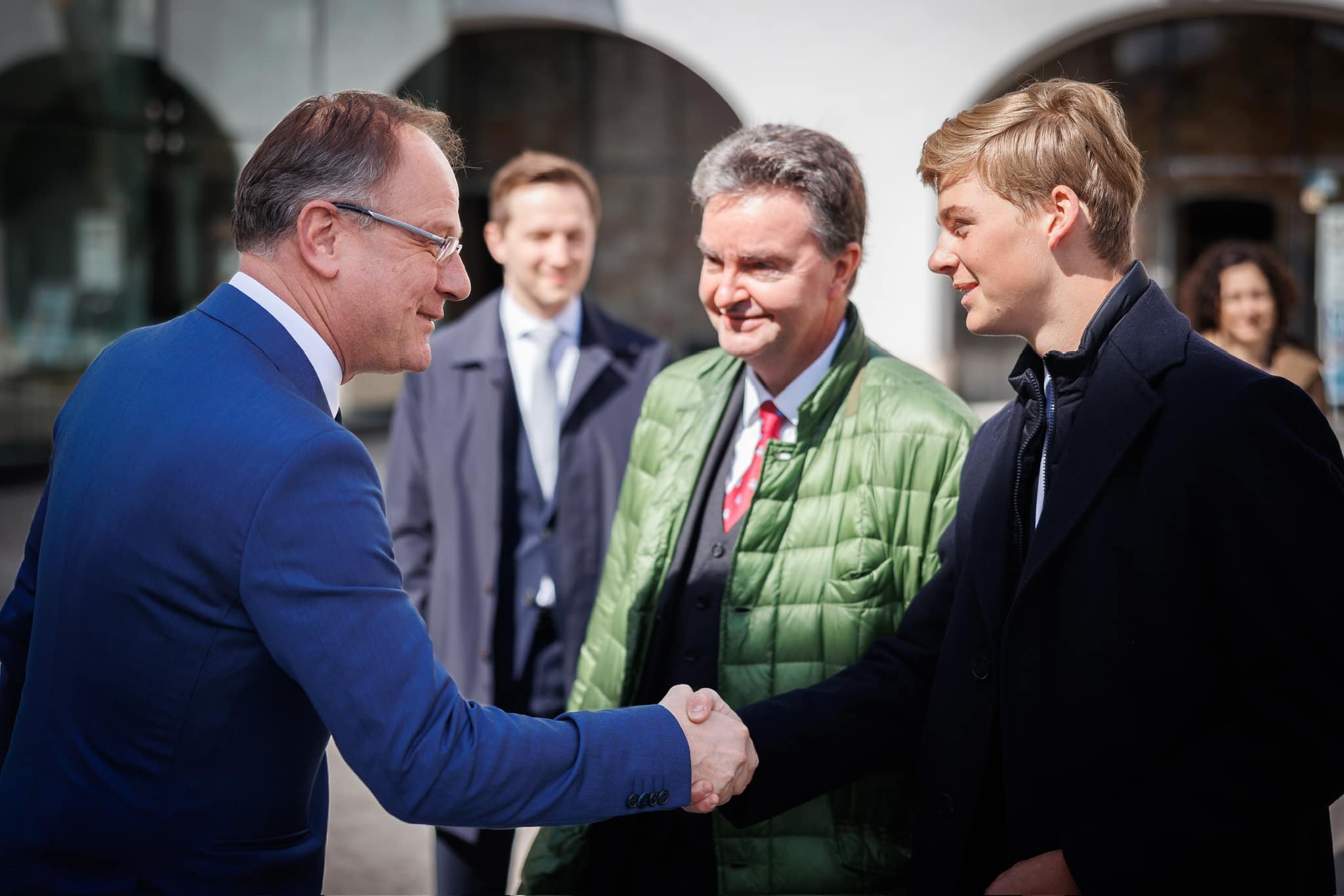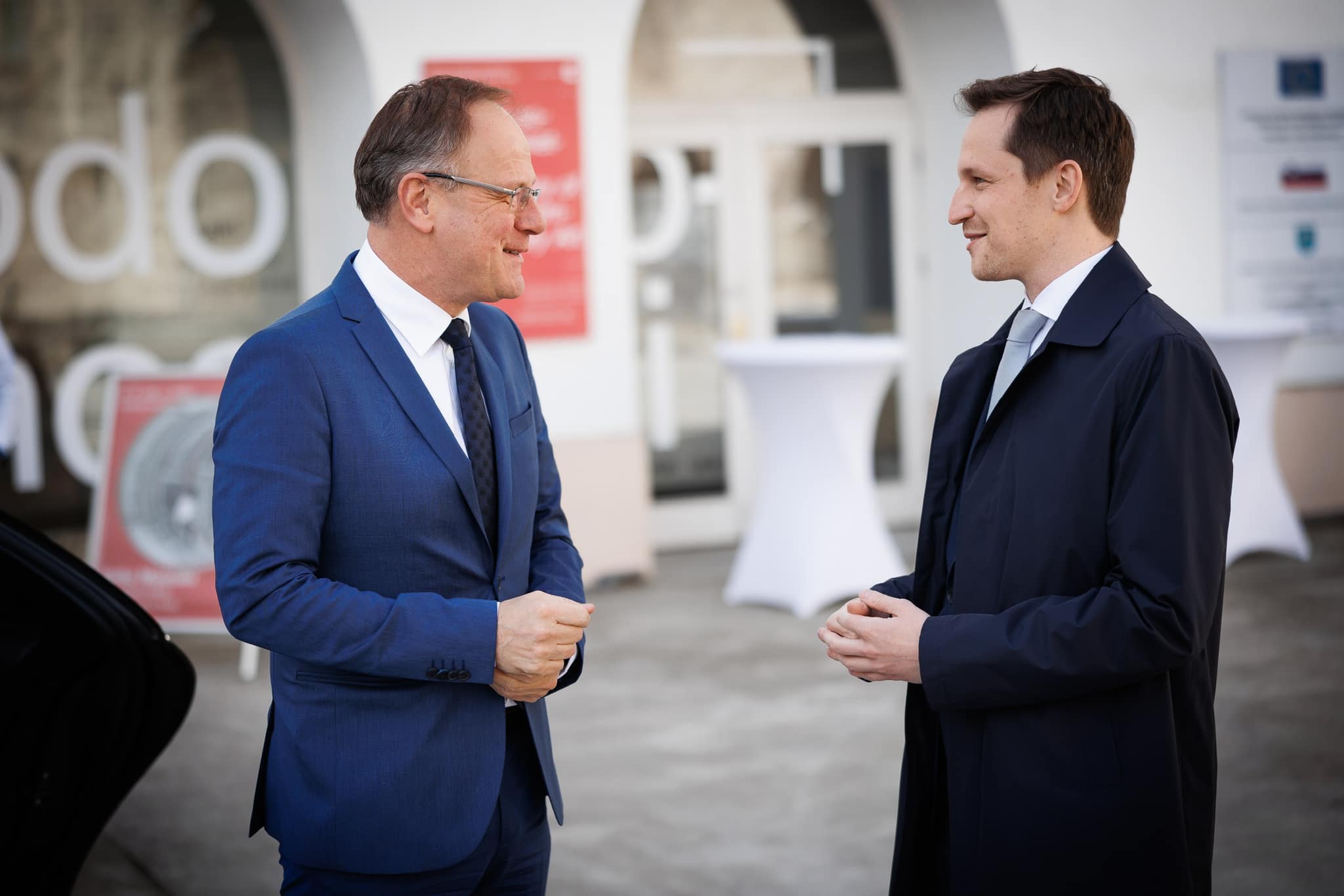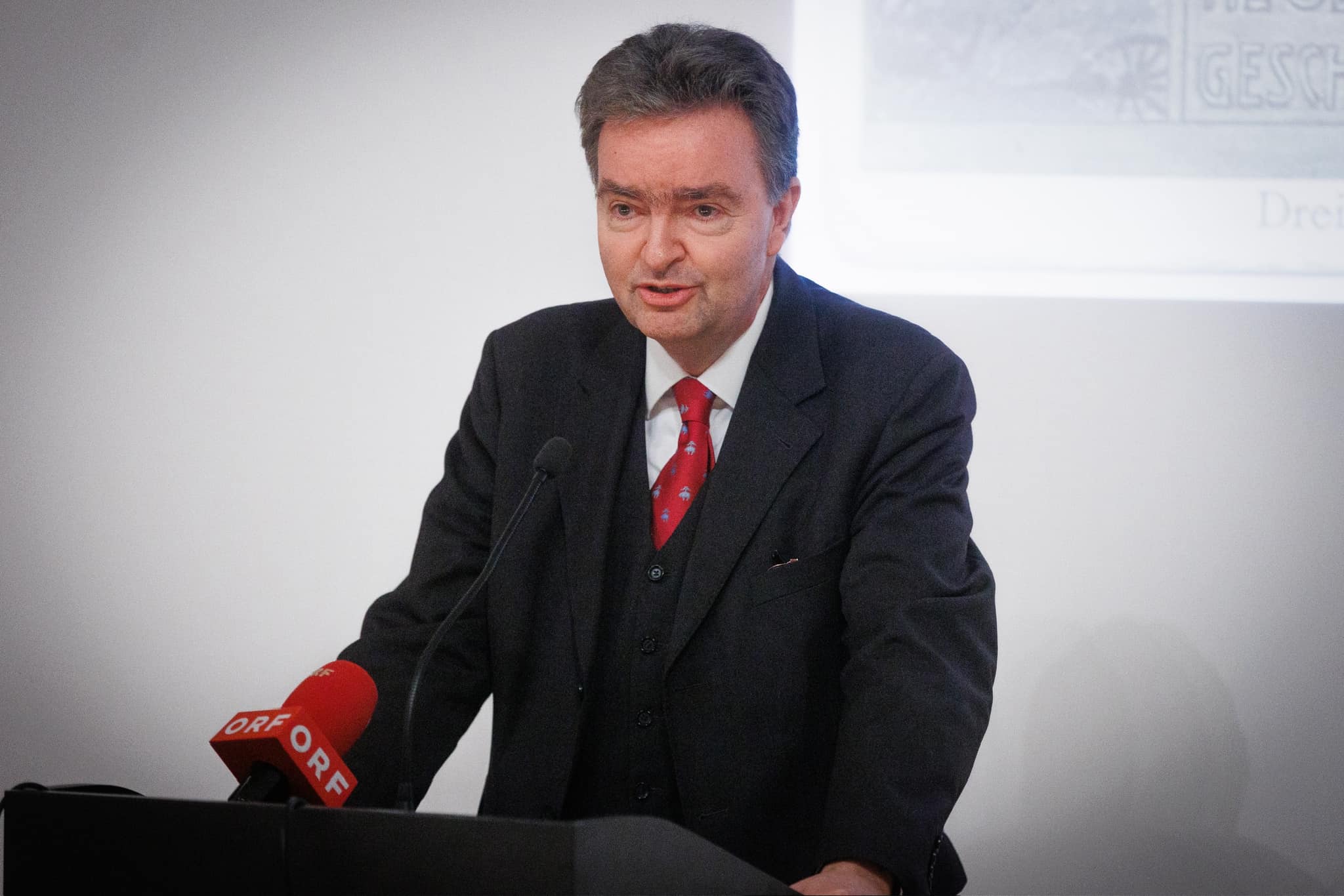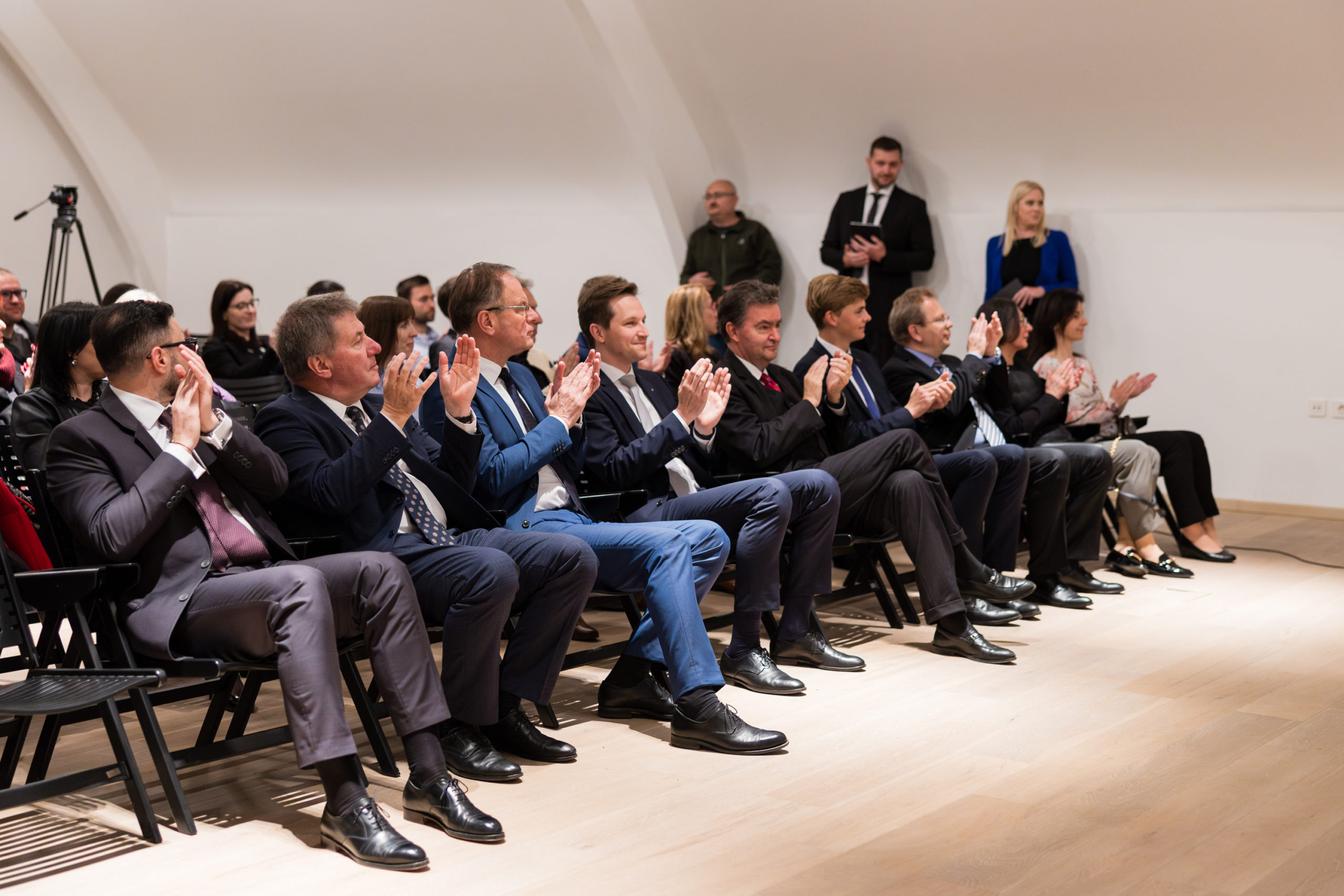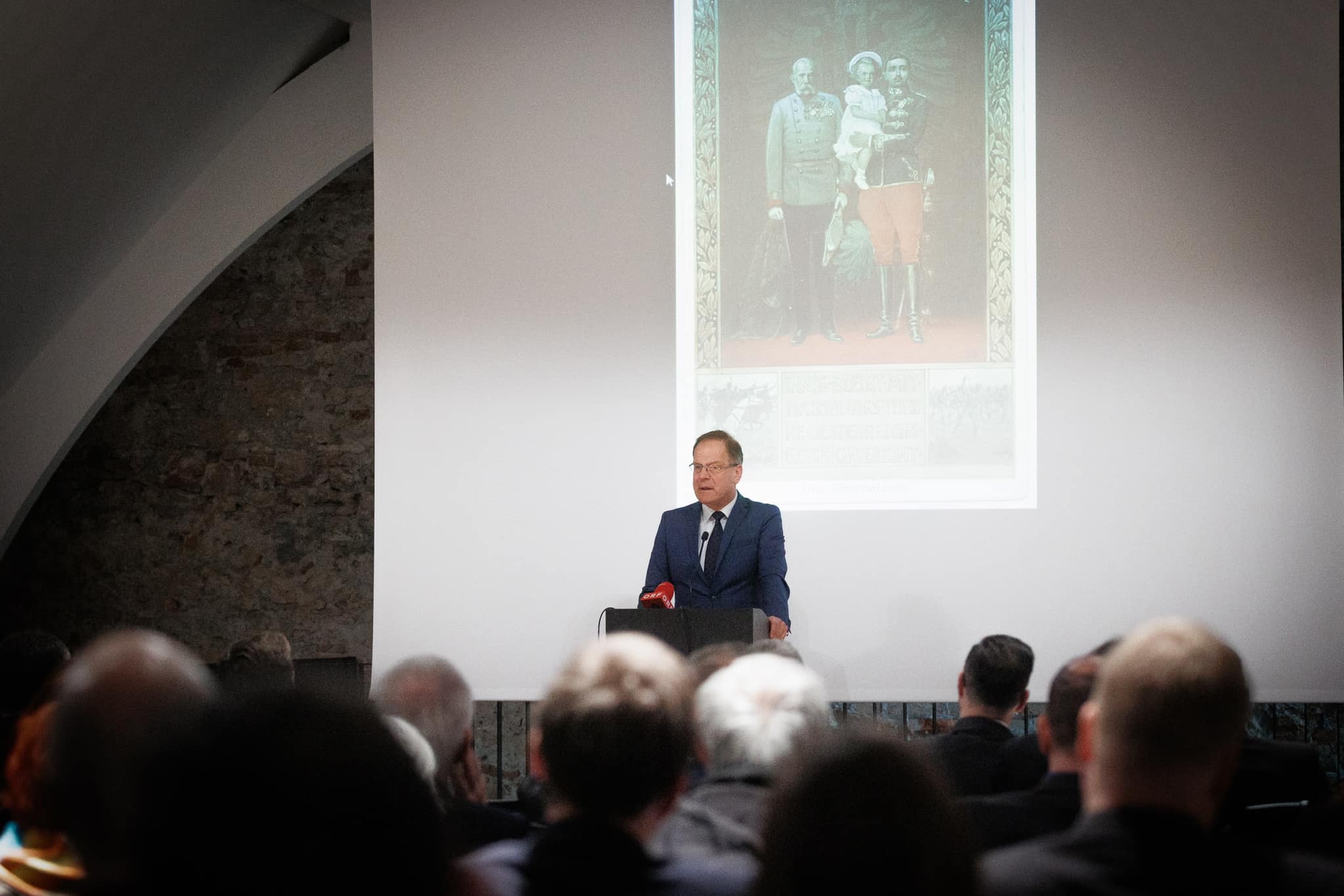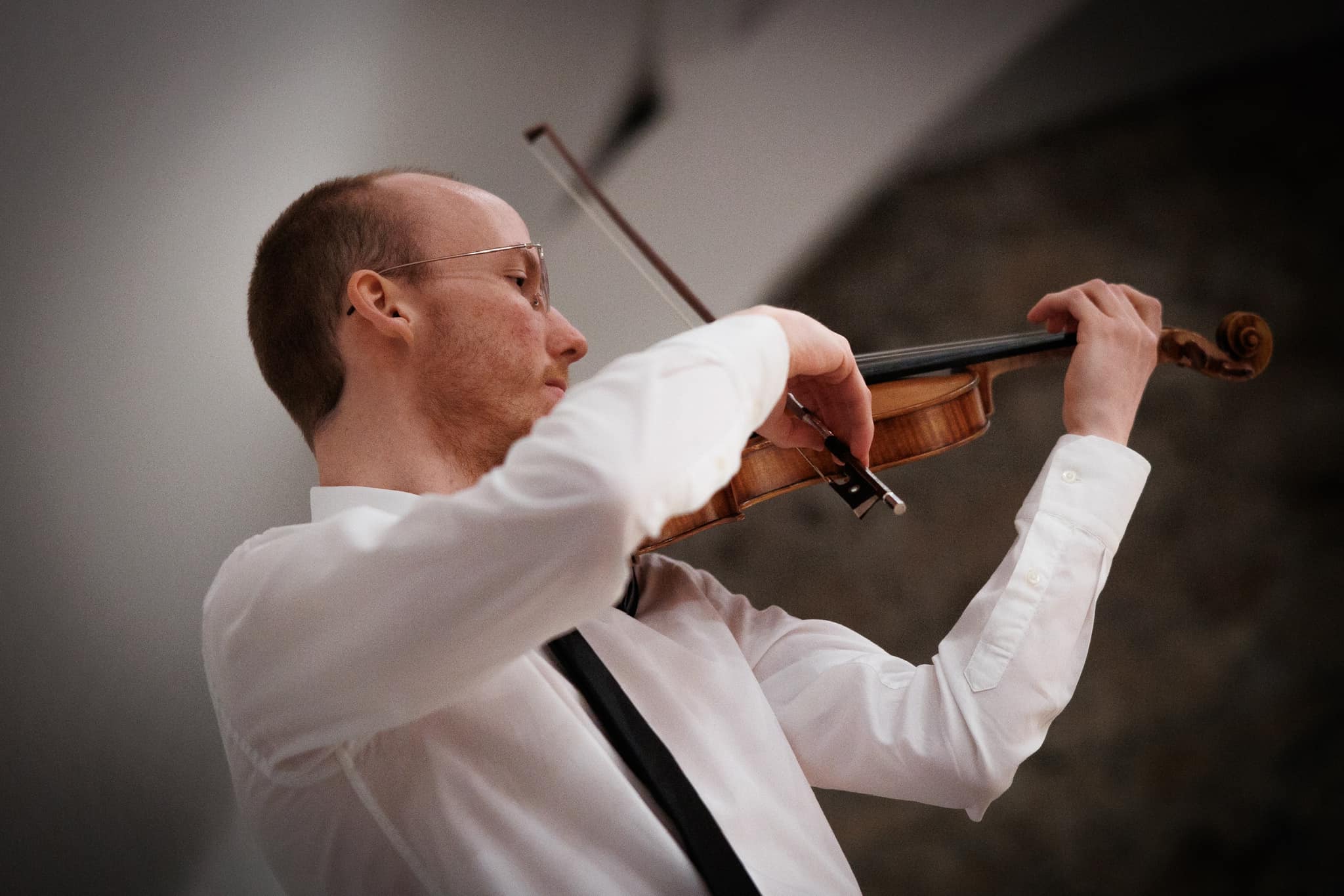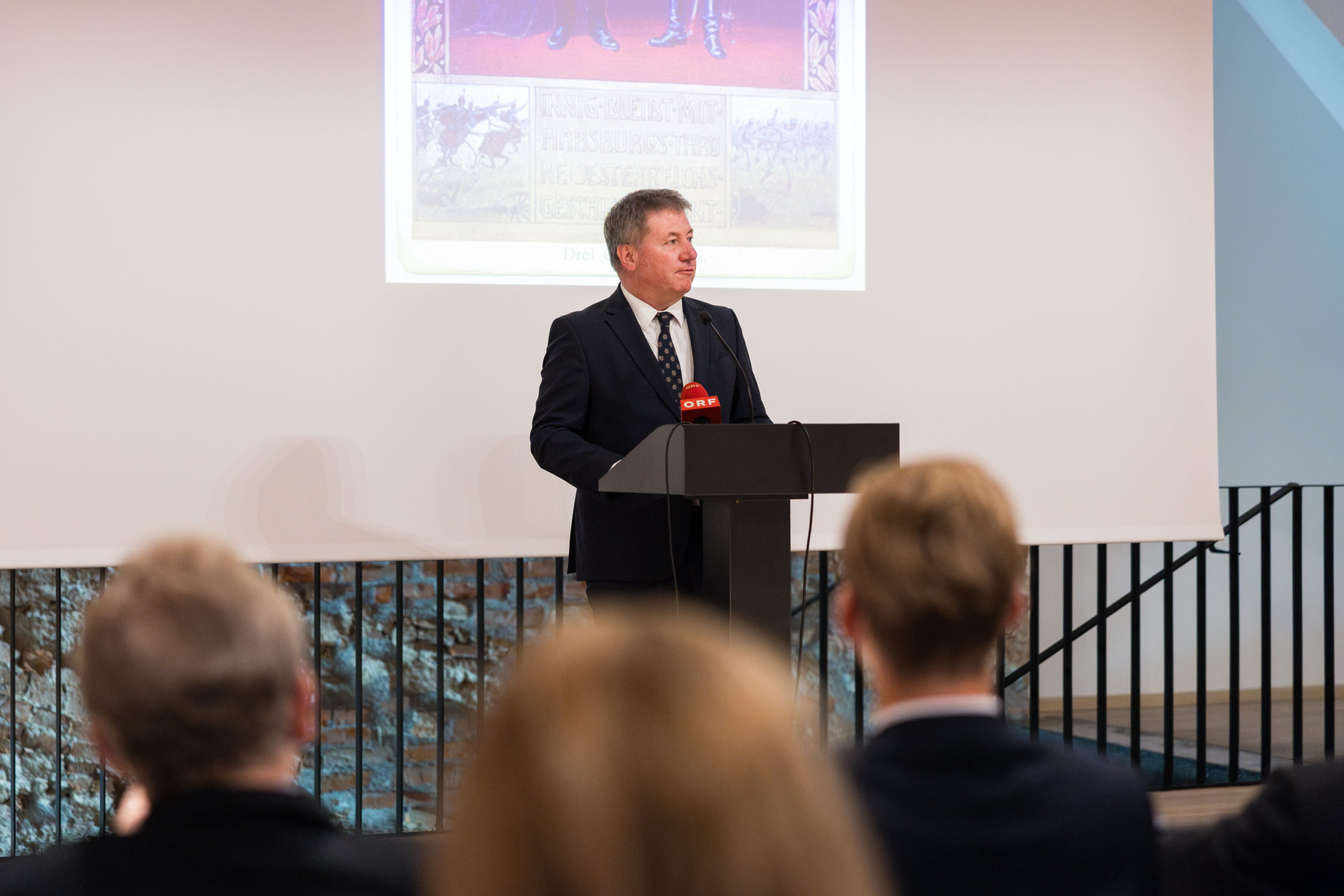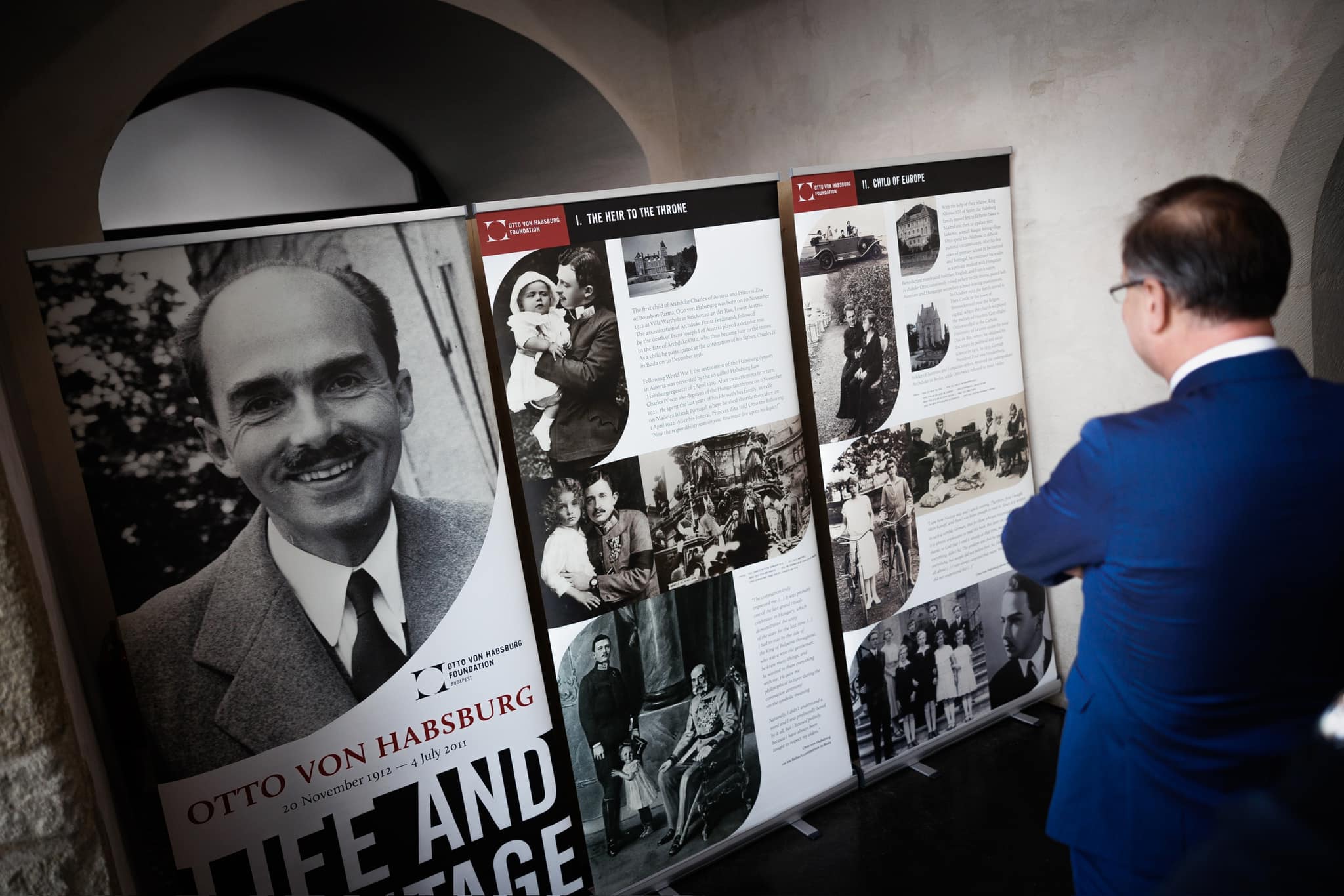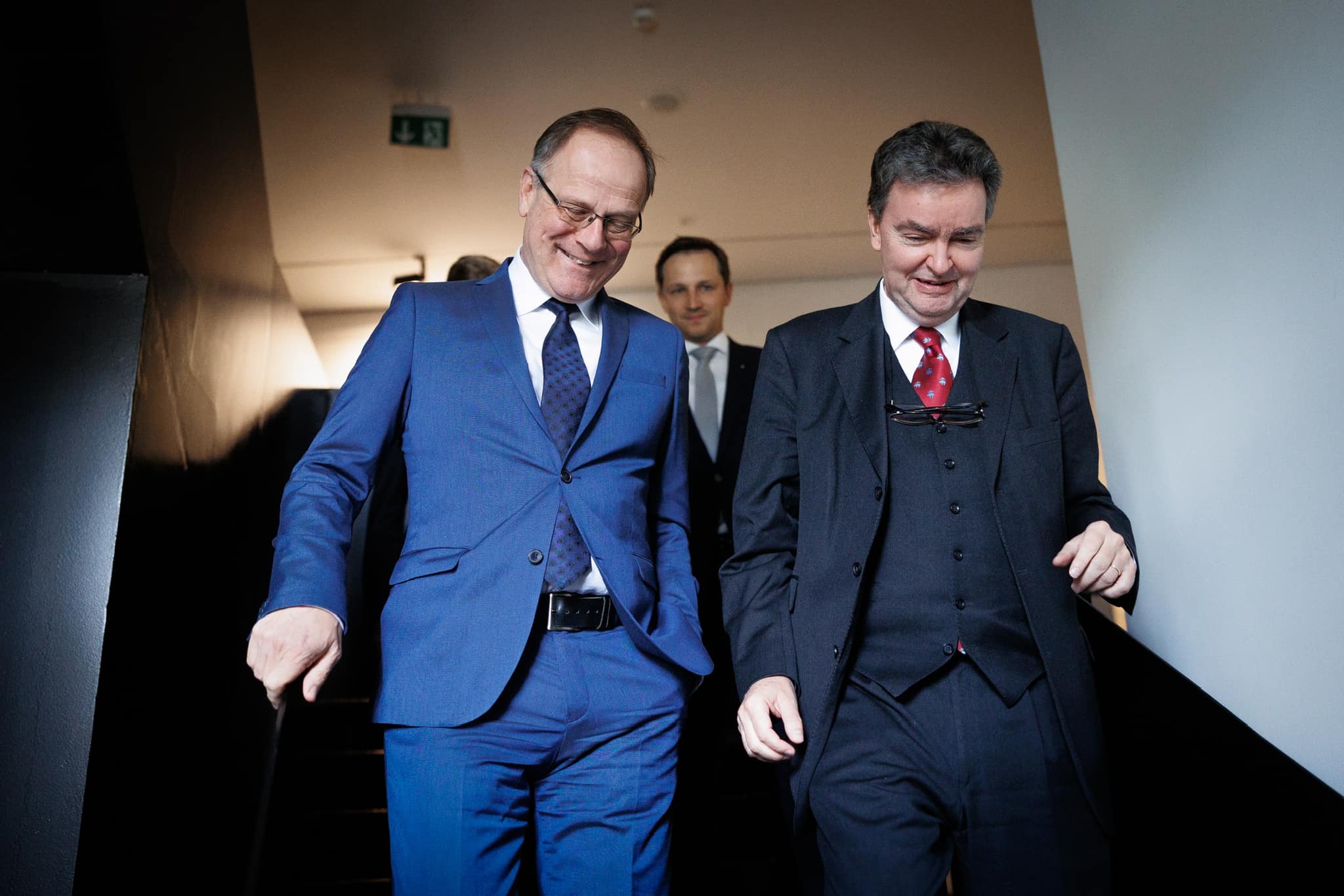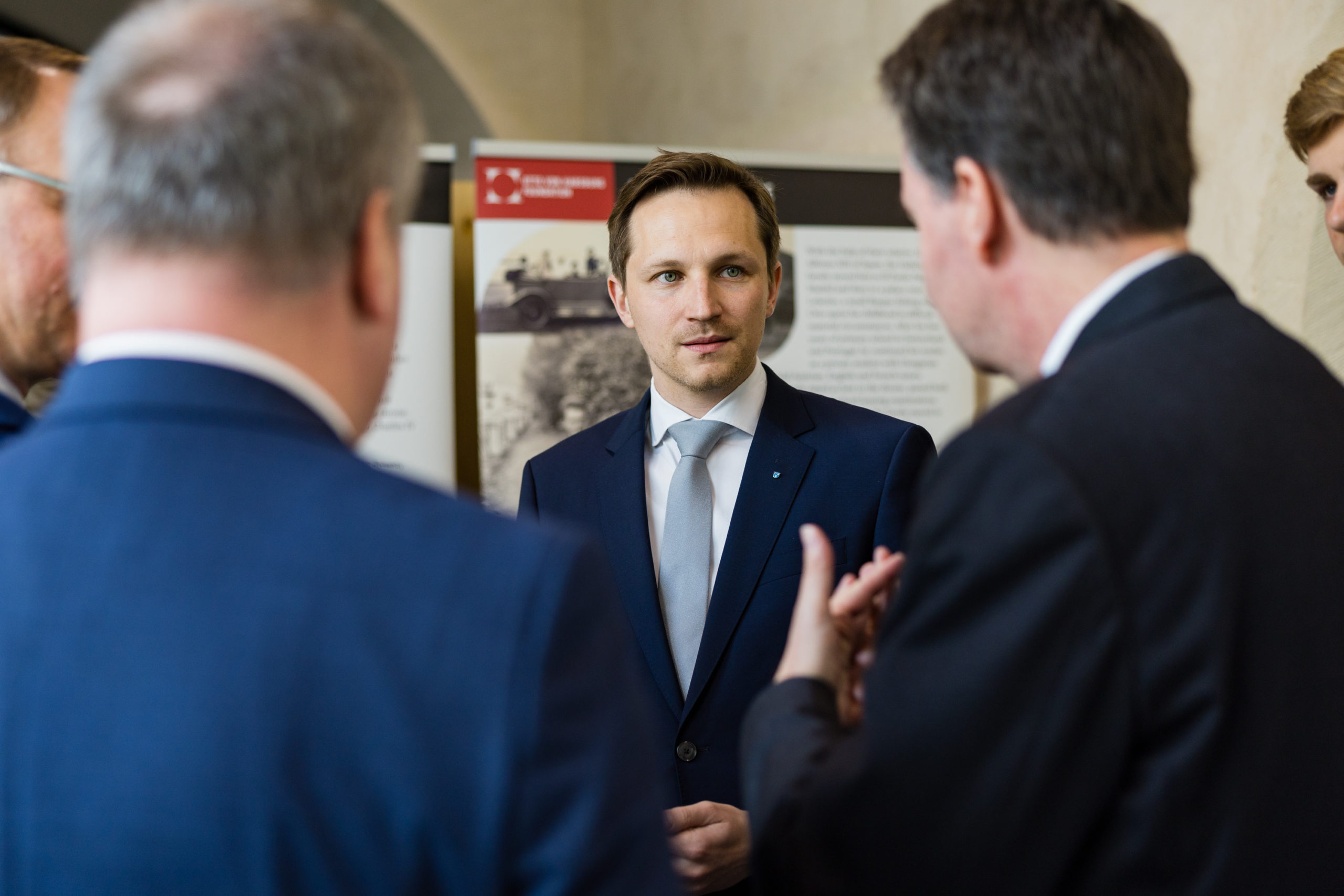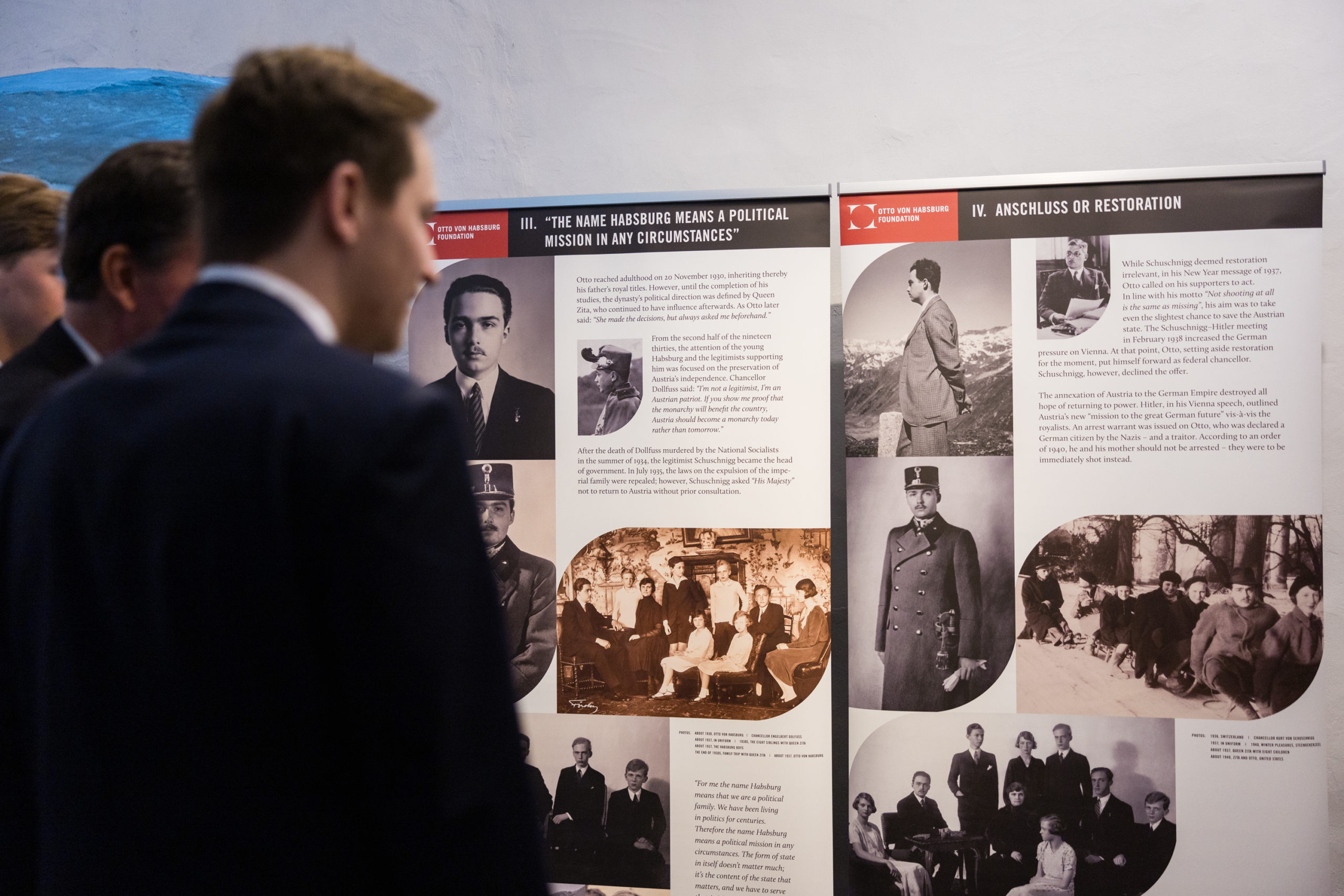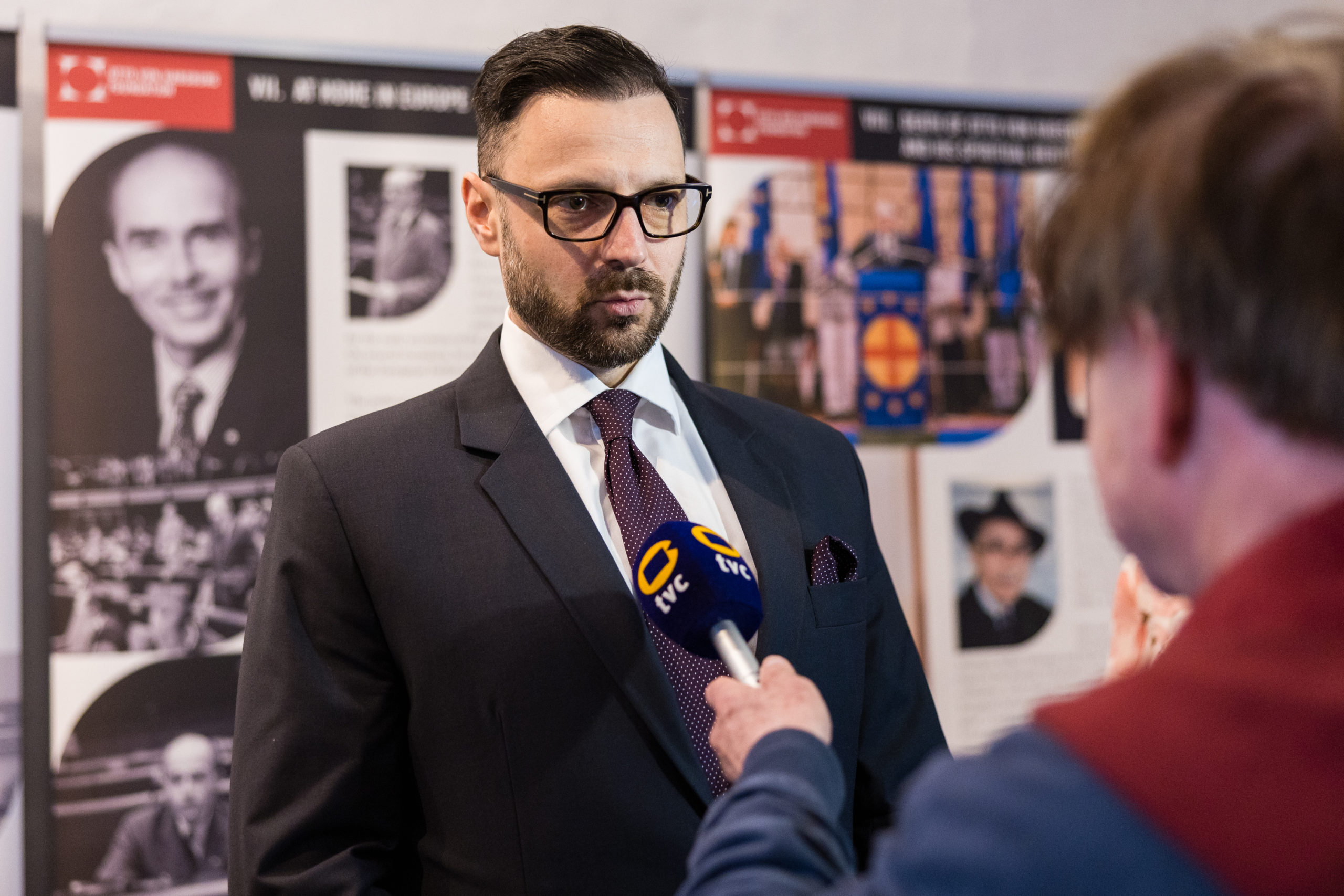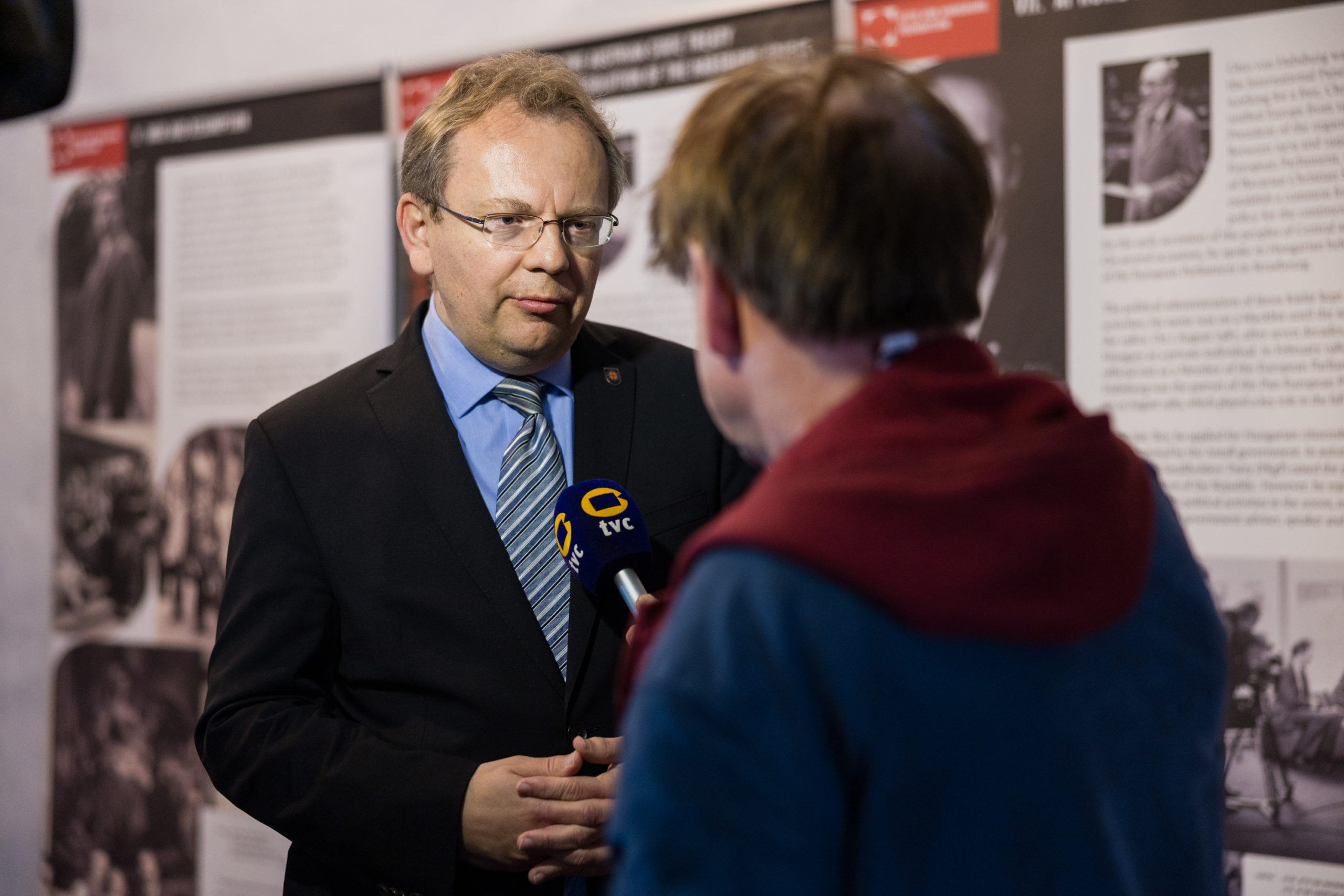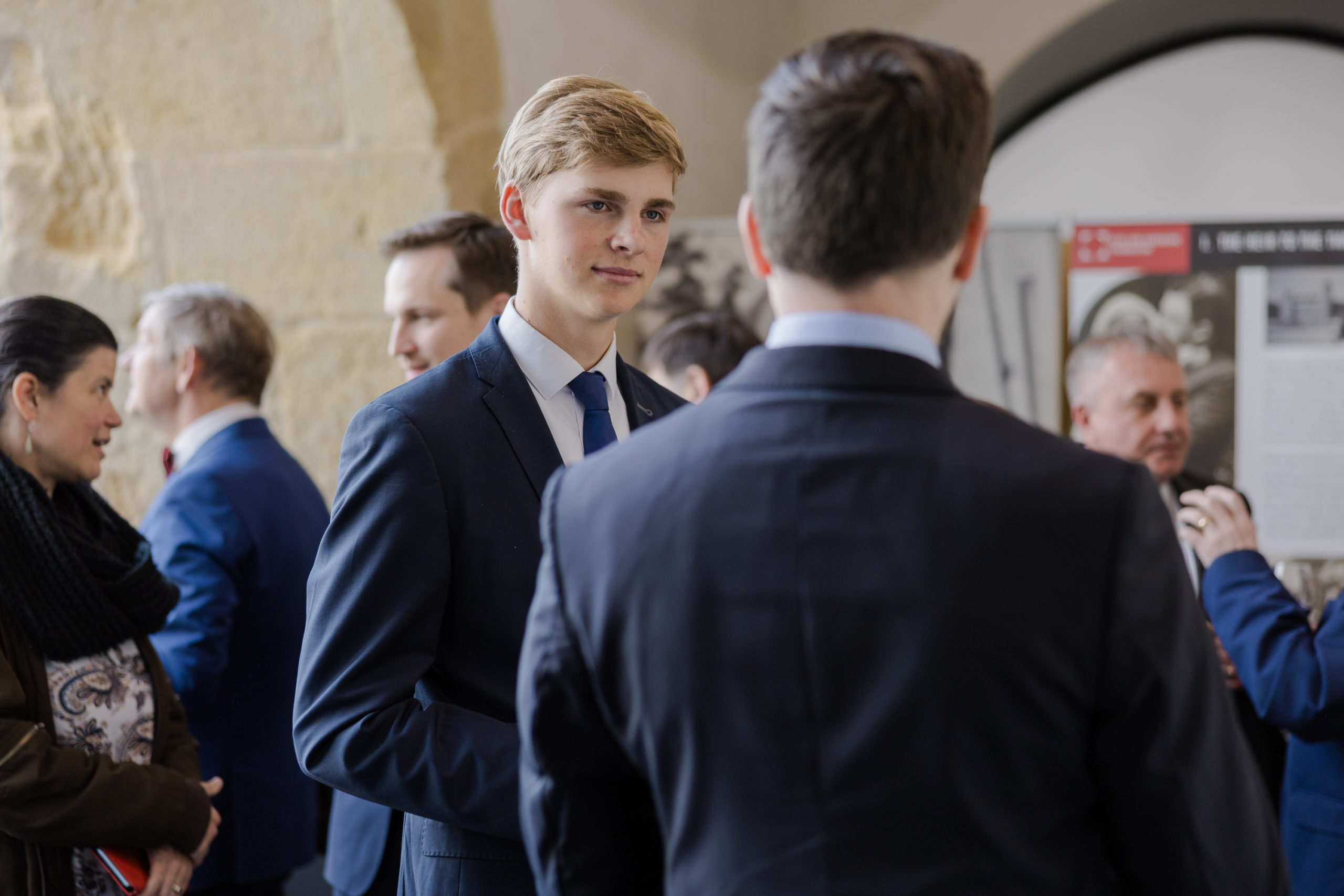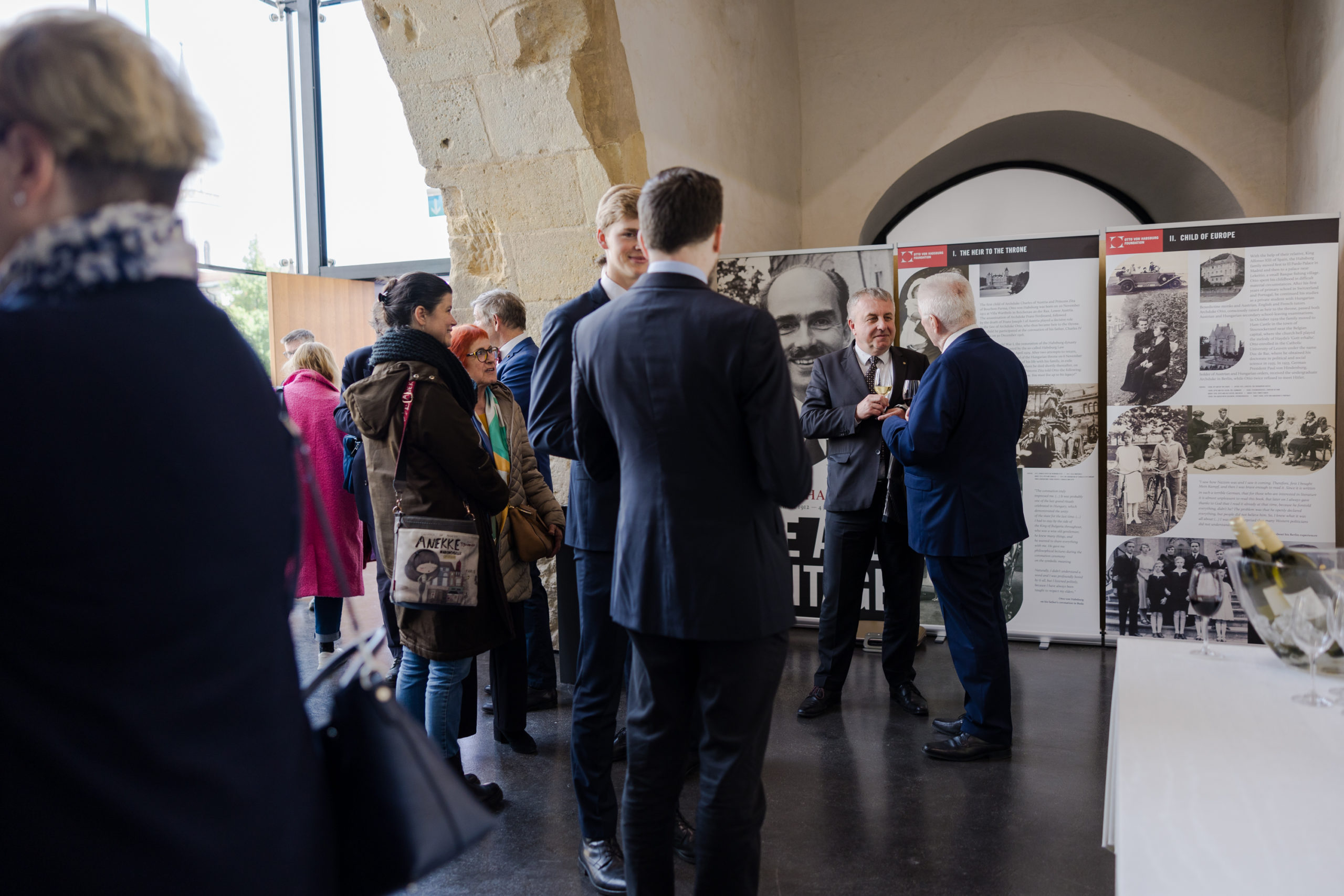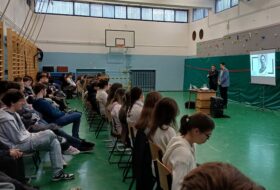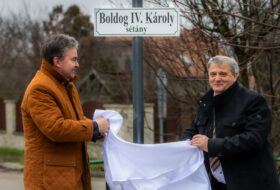Matija Kovač, Mayor of Celje, stressed that he was very pleased that on the occasion of the 20th anniversary of Slovenia’s accession to the European Union, an exhibition on Otto von Habsburg, who was an important supporter of the country’s independence and the integration of Europe, is being opened in the historic town. This event also provides an opportunity to present the city’s rich historical heritage and to strengthen ties with Hungary and Veszprém, now a twin city of Celje.
Georg von Habsburg, Ambassador of Hungary to Paris and member of the Board of Trustees of our Foundation, recalled in his speech that his father, Otto von Habsburg, was the owner of the 17th Infantry Regiment of Ljubljana as a child, and thus started his military career in Slovenia. He said that the exhibition is not only about the life of Otto von Habsburg, but also about the most tumultuous century of history.
His father’s perspective was shaped by his historical experiences. He was born into the Monarchy, became heir to the throne, then became an exile, until he eventually found his own purpose in taking an active role in building a united Europe. For him, this meant not only economic integration, but above all security and stability. The Ambassador highlighted two key messages that Otto von Habsburg passed on to his children: the importance of personal experience and optimism. Finding a positive outlook is still a challenge today, as it was for Otto after two world wars and many tragedies. At the same time, he lived to see Hungary and Slovenia join the European Union together in 2004, along with a number of Central and Eastern European countries. Thanking the organisers for their work, Georg von Habsburg concluded by saying that, following in his father’s footsteps, we must continue to look for solutions today, bearing in mind the lessons of history.
Celje is an important place in Hungarian history, but here in Central Europe we are often confronted with the fact that we know little about our neighbours – Tibor Navracsics began his speech. Hungary’s Minister of Public Administration and Regional Development sees Celje as an example of how, despite old conflicts, a city can and should be a meeting point. Otto von Habsburg, a descendant of the Habsburg dynasty, was an advocate of the Central European idea – in this sense, the event is a meeting point, both intellectual and political. The former heir to the throne believed in the power of Central European connections, in what binds us together, and that a politician, a public figure, without titles or even positions, has an influence – and indeed a responsibility. The idea of a Central European community has not always been popular throughout history, but it has always been a priority for the former heir to the throne. His heritage was also an obligation to help establish this community at the heart of Europe. It is also a moral responsibility: to search for the points, the people, the places that unite us. This was the aim behind the establishment of the Otto von Habsburg Foundation, and this is why initiatives beyond borders are so important. This meeting in Celje is not just a cultural event or a commemoration, but a way of creating the future.
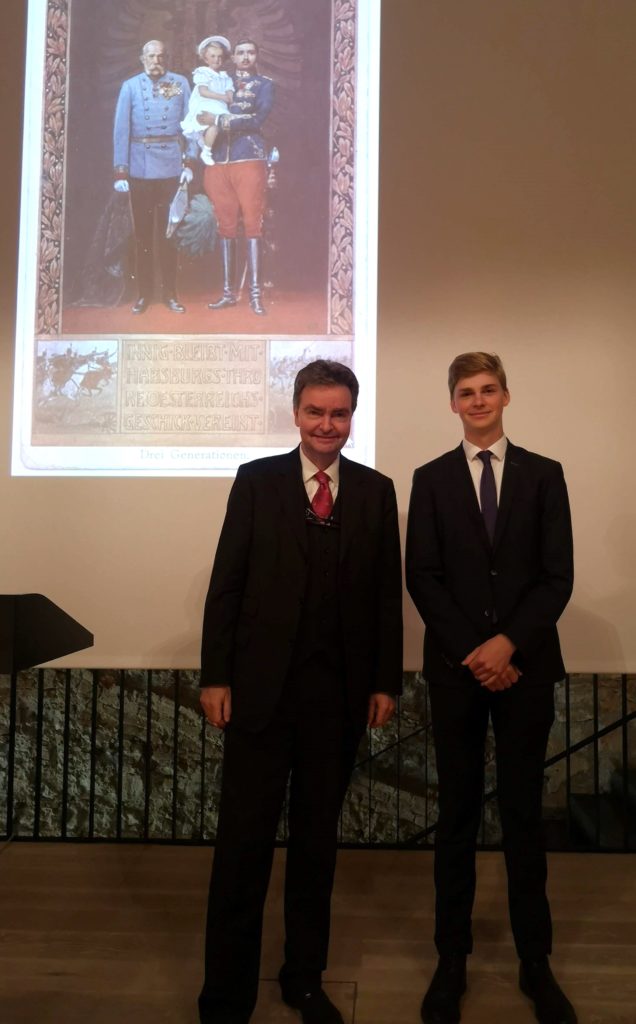
Five generations |
The opening was closed by a speech by Gergely Prőhle. The Director of our Foundation welcomed the efforts of the city administration to combine history with modernity. The image displayed is symbolic, he said, as it highlights the need for cooperation between and across generations and resonates with the message that has been expressed at this event: we must approach the challenges of the present with history as our reference point. The three generations and the picture we see have been shaped by the twists and turns of history. The perception of Franz Joseph is controversial in Hungarian history, but it was he who laid the foundations for the modern structure of the Monarchy through the Compromise of 1867. Charles IV was aware of the problems of the state he led and wanted to reform it, but the First World War brought an end to his efforts. Otto, seen in the hands of his father, grew up as a committed advocate of a modernization that respects tradition whilst looking into the future.
The Otto von Habsburg Foundation manages the tangible and intangible heritage of its namesake in Hungary.
This legacy is the imprint of his intellectual efforts and testimony to his ability to transform the historical (dynastic) family experience into the cornerstone of the future. Gergely Prőhle expressed special thanks to Professor Andrej Rahten, who paved the way for cooperation between the Foundation and Slovenia. Twenty years after EU accession and 45 years after the first direct elections to the European Parliament, it remains true that Central European relations can help the people of the region and of Europe to define and renew themselves. Let the continuity of this experience and Central European, European consciousness remain our important guide.
The exhibition will be on display at the Regional Museum of Celje until the end of May 2024.
Photos: Mayor’s Office Celje; Ministry of Public Administration and Regional Development
